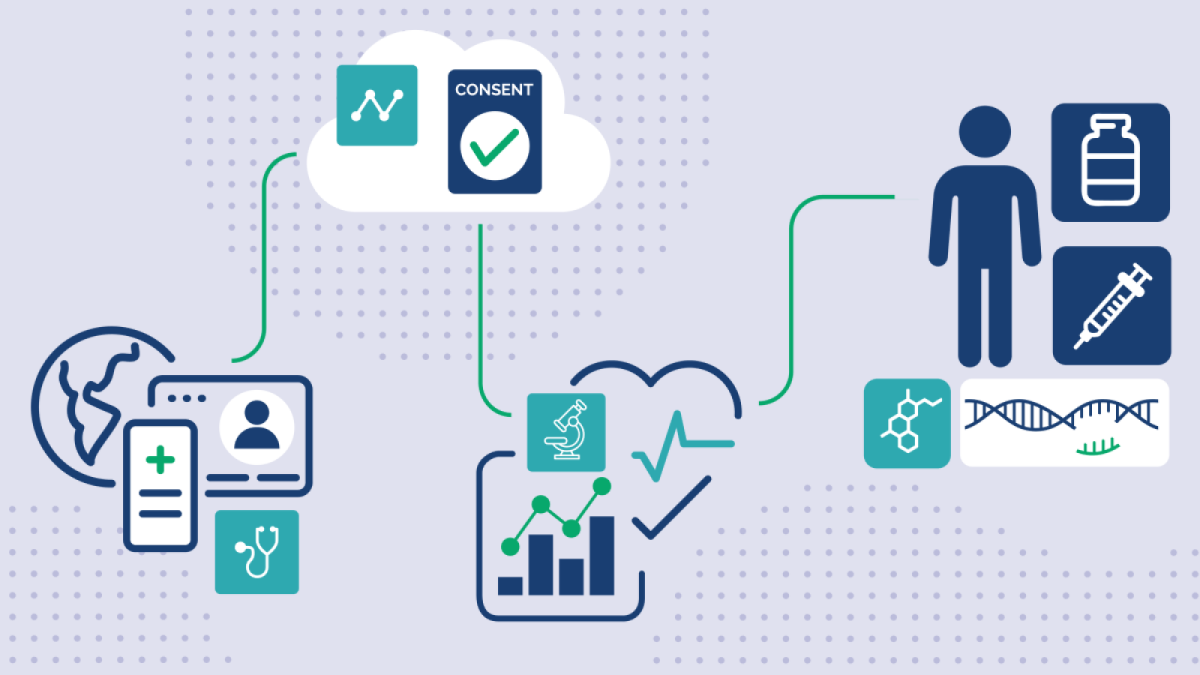Real patient data from people living with multiple sclerosis (MS) is helping Dr Will Brown explore new ways of using existing treatments to reduce long-term disability. Dr Brown, a Consultant Neurologist and Senior Research Associate at the University of Cambridge, is a big advocate for using patient registers - large databases which store medical data from consenting people who live with a particular condition - to help inform research studies.
Will (pictured below) is funded through the NIHR Fellowship Programme and spoke to us about his work.

What’s the appeal of using medical registers?
These are amazing, searchable resources of information about people with a condition. They include people’s test results, treatments and long-term follow-up (a record of a patient’s health over an extended period of time).
For example, the largest international MS register, MSBase, has records from over 85,000 people with MS from 45 different participating countries. You can use that data to find out answers to many questions ranging from prevention, diagnosis, treatment, monitoring and managing MS.
Is using data from registers as good as data from randomised controlled trials?
Let’s be clear: when determining whether the effect of a treatment is purely due to that treatment, the randomised controlled trial remains the gold-standard. But frequently they are not feasible, for many different reasons. They can also take a very long time.
Register data can provide answers in months; and robust register studies produce the same results as trials asking the same questions.
We use an approach called trial emulation for robust register studies. We design the randomised controlled trial that we would like to do; then use statistical methods that have been shown to give the same conclusions as trials. So, the short answer to that question is ‘yes, almost’. We can use methods that very effectively emulate a trial.
Is there a UK register for people with MS?
There are about 140,000 people with MS in the UK - but the UK MS Register contains the minimum clinical dataset from fewer than 1% of them. Similarly, few British people with MS are in international registers like MSBase, so conclusions we draw from studies on international registries cannot reliably be applied to British people with MS.
Currently, clinicians must enter information into the usual hospital notes and then separately enter it into a registry portal. This takes considerable time, which most clinicians simply don’t have. And because hospital records contain no MS-specific forms, clinicians have to type the information into a text box, so the information gathered on each person significantly varies, is challenging to search and frequently contains errors. Consent is an additional requirement.
So how will your research help to get more people with MS added to UK registers?
We’re modifying the most widely-used electronic healthcare records to collect the data in a structured way. We will automatically extract the data of patients who have given consent and send it to registries. All at no time cost to clinicians.
We are starting with modifying EPIC, an electronic patient health record system already used by 12 multiple sclerosis centres in the UK. Clinicians will enter the usual information during the appointment - such as the dates and features of relapses, disability scores and treatments. All these fields are standardised and will not need any information outside of the existing consultation. This data then can be sent electronically to both the UK and the international registers.
We’ve also built a new national unified consent form for people with any neuroimmunological disease, including multiple sclerosis. This is called CONSENTOR, and it lets people with the condition use a single form to consent to their data being added to multiple registers and used in local research. They can also opt to join a new trial eligibility checker.

What will the benefits be?
We expect to increase the numbers of UK people with MS who are in registers tenfold over 3 years. This will greatly increase the data available for researchers and boost our knowledge about living with multiple sclerosis in the UK.
It will also improve the quality of information, since we’ll be collecting standardised information from people with MS on a consistent basis. Any changes will also be automatically added to registers whenever a patient record is updated.
In addition, this information will be displayed within the electronic notes for doctors, nurses and people with multiple sclerosis to see. This will enable faster and more reliable decisions about treatments, plus automated safety alerts about patients.
What are your other NIHR Fellowship projects?
We aim to reduce MS-related disability by improving how existing drug treatments are used, using the international patient registers.
We know that starting treatment within 2 years of MS onset leads to less disability than with later treatment. We don’t know how much earlier this can be though.
In 1 project, we’re using the registers to compare the long-term disability level of people who were treated within 6 months of their first symptoms, versus those who were treated later. We’re hoping to see if using more powerful drugs, like natalizumab, will make a difference at this very early stage.
Another project looks at ‘silent’ activity on MRI scans. Sometimes, there is new activity on a brain scan even when there aren’t any new symptoms. For example, there might be an increase in the number of lesions - damaged areas in the brain - but the person’s condition may not have changed.
We normally only switch a person with MS to a stronger drug when they have a confirmed relapse – but would switching to a stronger medication once we notice ‘silent lesions’ reduce this risk further? I’ll use our results to produce guidance for doctors on how frequently patients should have scans, and what to do if silent lesions are found.
What do you hope to see as a result of your research?
Multiple sclerosis is among the most common causes of disability in the young. Over half of working-age people with MS are no longer employed, and over 40% require daily help. If we can show that early treatment is more effective, this could lead to improvements in patients’ quality of life and independence, and enable them to remain employed and part of working life.

How you can get involved with research
Sign up to Be Part of Research to take part in a range of health and care research. You can also visit our 'How to take part' page to find out more about research trials that are happening now and in the future.
Our 'what happens on a study' page provides more information on how trials work. And if taking part in a study doesn’t feel right at the moment, there are other ways to get involved in research.
Related research
An NIHR-funded study in Scotland is looking at different diagnostic tools to predict progression in multiple sclerosis. Different types of brain scans are being taken from patients across Scotland who are newly diagnosed with the condition, to identify lesions on the brain and changes in brain volume.
The team is interested in 1 particular type of lesion that is associated with iron deposits and inflammation. The first stage of the research confirmed that these lesions could be identified using brain scans. Now more patients are being recruited to the study to increase the sample size.




